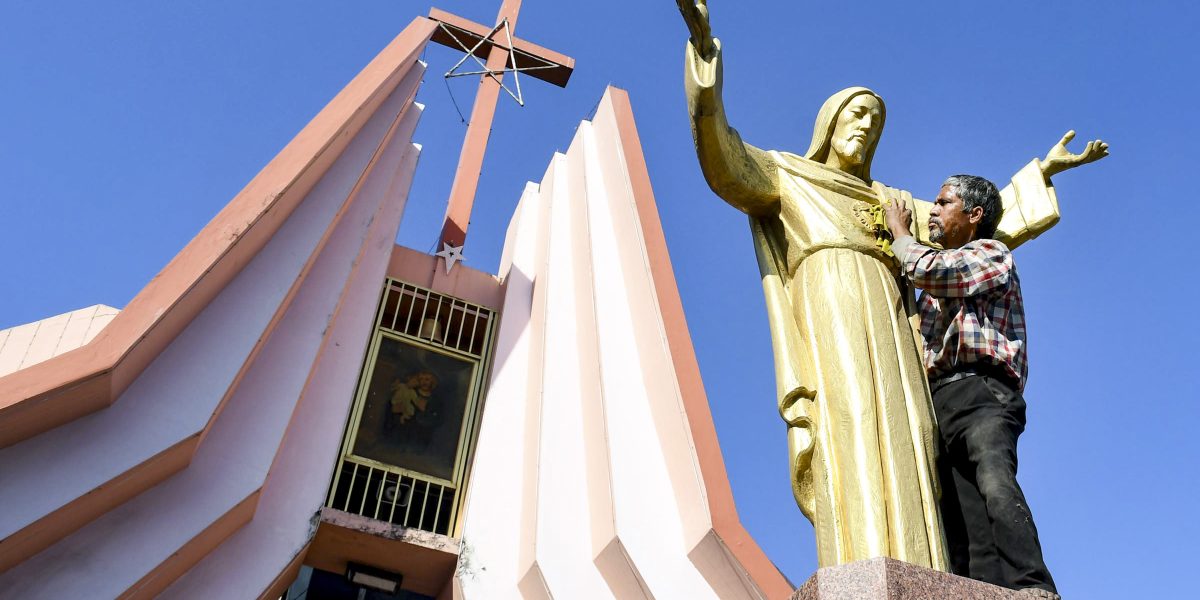
By Ahmed Kasim
NEW DELHI — “We have always taught our children to stand up against oppression; stand with the good and fight against the evil. Citizenship law is persecution against Muslims and for this, my son was fighting.”
Afzal Hussain speaks about his son Athar Khan with an air of pride.
Athar, 25, is in jail for more than a year now. He is one of thousands of people, mostly Muslims, who came out on the streets in the winter of 2019-20—one of the largest protest movements in the history of India’s independence— against the Citizenship Amendment Act (CAA) and the proposed exercise for National Register of Citizens. The Act enacted by the Modi government in 2019 has been criticized as it discriminates against Muslims while enabling the naturalisation of refugees from neighbouring countries.
Iriked by months-long protests, senior leaders and ministers from the ruling Bharatiya Janata Party (BJP) exhorted their supporters to resort to violence against protesters. On 23 February 2020, BJP leader Kapil Mishra gave a provocative speech in the presence of police giving a warning that his supporters would resort to vigilante violence to clear the crowd (Anti-CAA protestors) if police failed to do so. This was followed by armed mobs rapidly spreading across different parts of northeast Delhi unleashing communal violence for days claiming over 50 lives, majority of them Muslim.
The police later blamed the protestors for the riots and detained a number of anti-CAA activists including Athar Khan under the Unlawful Activities (Prevention) Act or UAPA on charges of terrorism alleging they hatched a conspiracy to foment riots in Delhi in February 2020.
Those facing charges also include Umar Khalid, Khalid Saifi, Sharjeel Imam, Meeran Haider, Shifa ur Rehman, Gulfisha Fatima, Shadab Khan— still in jail— and Safoora Zargar, Asif Iqbal Tanha, Devangna Kalita and Natasha Narwal — out on bail.
While most of them are regularly covered in news and have also garnered solidarity from civil society groups, Athar Khan’s case unfortunately and inexplicably has got little media attention.
“I think the people for whom my son raised his voice don’t care much about his sacrifice, everyone is sleeping,” laments his father
Athar was first summoned to the Delhi Police special cell at Lodhi Road in May 2020. The police interrogated him for one day during which, his family said, he was tortured; “When he returned home after interrogation he did not talk to us about it, he was beaten and could not even walk properly.”
On the evening of 1st July 2020, the police again called Athar to the cell. Next day he drove to Lodhi Road to appear before the investigative officers. After two hours, his father got a call from a sub-inspector asking him to take Athar’s car home. “I asked them why they were arresting him but the police officer said that I should ask this question in the court.”
Athar is the eldest of Hussain’s four sons. He comes from a family that has a history of standing up against oppressive regimes. His grandfather, Hussain says, was active in the protests during the emergency enforced by former Prime Minister Indira Gandhi.
“Athar’s political consciousness is informed by his sense of our family history,” Hussain continues. “He took part in the protest movement during the Nirbhaya issue of 2012.”
Athar was also an active supporter of Kapil Mishra, who also comes from northeast Delhi, and campaigned for him when he contested for Aam Aadmi Party from Karawal Nagar in 2015.
Unaware of how their paths would diverge in future, Athar used to work in Mishra’s social media team. “Kapil Mishra considered Athar as his younger brother,” Hussain recounts.
The family now believes Athar has specifically been targeted because of his past association with him. His father says, “police framed Athar on the directions of Kapil Mishra.”
On 5 March 2020, Kapil Mishra alleged in a tweet that Athar was part of a mob that murdered police officer Ratna Lal during the Delhi riots.
His father however dismissed these allegations, saying “a lot of false accusations have been made and spread against our son. Kapil Mishra has tried to defame him.”
The family feels that their son is suffering for crimes they say “he did not commit”.
“Athar is in jail because he is a Muslim while real culprits who murdered people are enjoying their lives.” says his mother. “My son does not deserve this. I see him in my dreams frequently. It is really heartbreaking that it’s been a year and our son is still separated from us.”
Apart from the conspiracy case, Athar is also accused of being part of a mob that allegedly killed a police officer Ratan Lal during the riots. He has, however, been granted bail in the third case related to looting of a showroom on the grounds that prosecution failed to prove he was present at the spot of the crime.
Ever since Asif, Natasha and Devangana have been released, the hope of the family for the freedom of their son has grown. “We always had faith in the law and now it has increased more after the release of Asif and others,” says Athar’s uncle Najmuddin.
Like Hussain, his mother is equally proud of his politics and participation in the protest movement against the Citizenship (Amendment) Act and NRC.
“Fighting for the right and saying the right thing is not a crime. I am proud of my son. He did nothing wrong. Neighbors always say that your son did what we could not do. I am proud to hear this.”
His mother wants to see him marry as soon as he comes out of jail. She says she has seen a girl for him as well. “I’m very eager about it.”
This story first appeared on clarionindia.net





